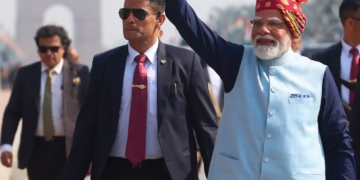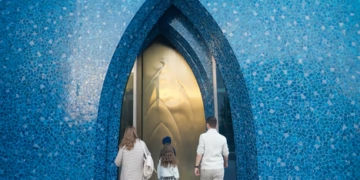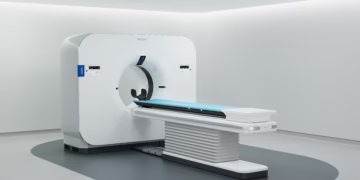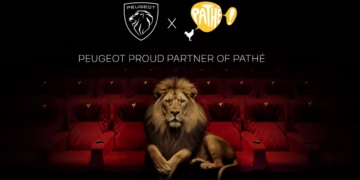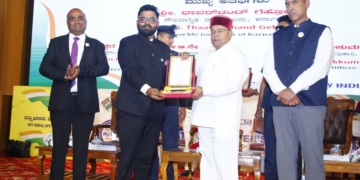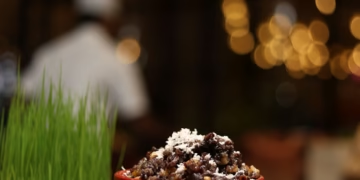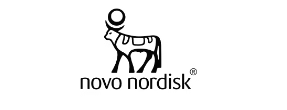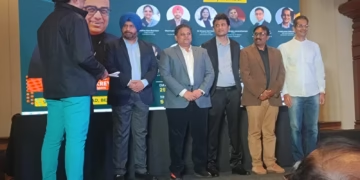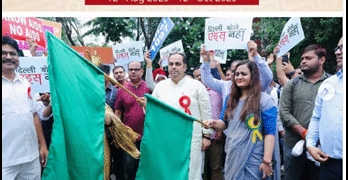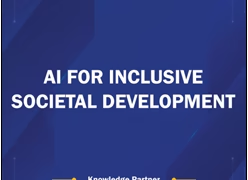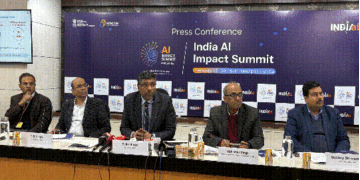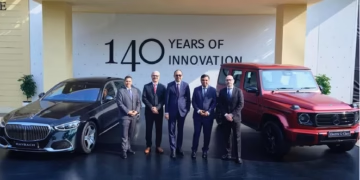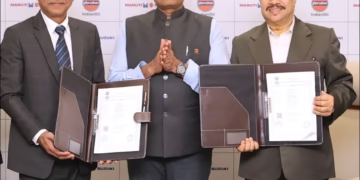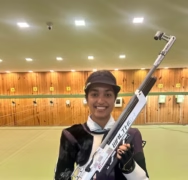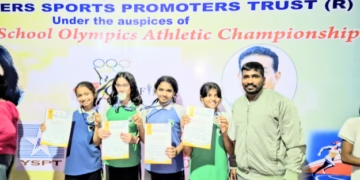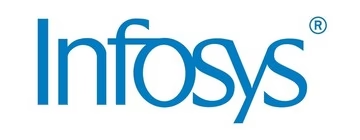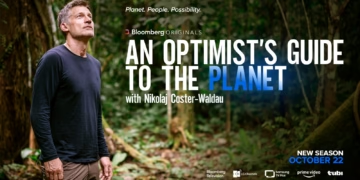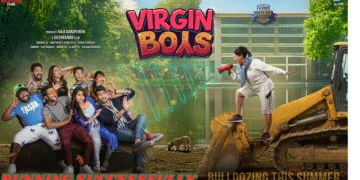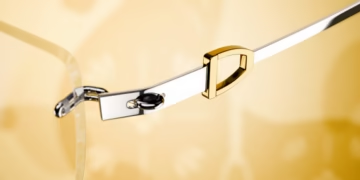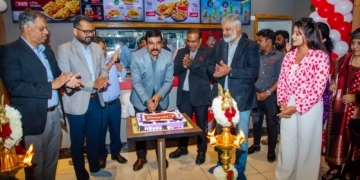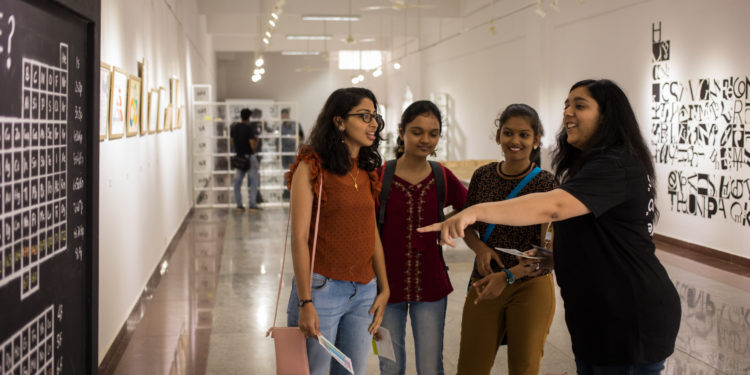Bengaluru, October 4:
Science Gallery Bengaluru and Royal Society of Chemistry together with Jawaharlal Nehru Centre for Advanced Scientific Research present ‘ELEMENTS; Stuff that Matters,’ a week-long exhibition in Bangalore, from 5 to 11 October 2019, to mark the International Year of the Periodic Table (IYPT).
UNESCO has designated 2019 as the International Year of the Periodic Table to mark the 150th anniversary of the periodic table of chemical elements proposed by Russian chemist Dimitri Mendeleev in 1869. Today, we largely follow Mendeleev’s map of periodicity while he built his table upon several previous attempts by others, some of which will be on display in the exhibition.
The Periodic Table of Elements captures the essence, not only of chemistry, but also of physics, medicine, earth sciences, and biology. It is an iconic image and a vital tool to all who learn and work in science and information design, at all stages of their learning and careers.
Hosted at the Rangoli Metro Art Centre on M G Road, the interactive exhibition attempts to engage young adults with exhibits that explore, question, sense and feel elements of the periodic table. These exhibits include BYOE (Bring Your Own Element), a display of select naturally occurring elements, RSC’s digital interactive-display, a testing table, and a graphic history of the Periodic Table. During the week, we will also see programmes such as Edible Elements – a tasting experience, film screenings, panels and small workshops.
Ajit Sharma, General Manager, Royal Society of Chemistry, India, said: “IYPT is a fantastic opportunity to inspire young minds with the study and application of chemistry. We are proud to be leading the UK’s contributions to these global celebrations.”
“We are delighted to partner with the Science Gallery Bengaluru to host ELEMENTS, in this global tech hub. We hope young minds participating in the exhibition will be enriched with the history of, and current trends in the development periodic table.”
“We chose to host this event in the centre of Bangalore on the iconic M G Road Boulevard as we wanted to bring science out of academic institutions and labs, into the heart of the city”
Dr Jahnavi Phalkey, Founding Director, Science Gallery Bengaluru, said: “The first of its kind in Asia, Science Gallery Bengaluru is a brand-new public institution for research based engagement in the city. We provide space for collaboration and experimentation for young adults. Together with our university-linked international network of galleries, we want to bring science back into culture.
“UNESCO’s International Year of the Periodic Table is an opportune moment for our first steps in Bengaluru. We look forward to engaging young adults in a conversation about the fundamentals of life on Earth: from the basic building blocks of not just chemistry, but also of Earth’s Deep History.”
“We are delighted to present ELEMENTS as our first ever pop-up exhibition in Bengaluru, building on a Science Gallery Dublin exhibition (2011), this time in partnership with the Royal Society of Chemistry.
Entry is open to all events, barring Edible Elements and Elements in the City, two workshops that require prior registration.
Exhibits
Tale of the Table
A selection from the archive of the periodic tables designed over the years by different scientists. From Dalton’s table of elements, to Charles Janet’s Left Step table, all the way to modern 3D representations, these representations date from 1708 to the 1990s. The images of this exhibit are courtesy of the Science History Institute, Philadelphia.
Bring Your Own Element (BYOE)
You can participate in ELEMENTS by bringing your own contribution to the crowd-sourced periodic table of elements. Your objects are placed on individual shelves dedicated to each element. We also have a list of everyday items for your reference, if you would like to have a look!
The Tableau
Explore here fun facts and stories of the entire periodic table developed by the Royal Society of Chemistry. You can also download the App on your smartphone!
Testing Table
Come experience the joy and messiness in the discovery of elements! Try your hand at finding the elements in a compound or make them change form!
Through the looking glass
Here are elements in their natural form! Hold them up-close and tell us what you see.
This exhibit is procured with support from the Jawaharlal Nehru Centre for Advanced Scientific Research.
Reading Nook
“Never memorize something that you can look up.” Albert Einstein
Sit down, relax and look up the social, political, chemical, and physical nature of the periodic table from Primo Levi’s “Periodic Table” to Sam Kean’s “Disappearing Spoon”.
Scripting the Table
What if we reimagine the Roman alphabet in relation to the elements? This exercise was taken up as the Letterform/Counterform Project in Professor David Mazure’s Design Course at the East Stroudsburg University of Pennsylvania.
Why don’t you give it a try with any Indian script that you can write?
Programme
Edible Elements*
9 October 5:30pm, 6:30 pm, 7:30 pm
Are we what we eat? Have a seat at the periodic table and explore various combinations of elements in our food, with Chef Elizabeth Yorke.
Film Screening of 94 elements
10 October 3:30pm
Join us at Rangasthala as we screen some fascinating movies from 94 Elements, a global filmmaking project. The project celebrates the diversity of the documentary form, with films being made by filmmakers and animators from all over the world.
Exploring the Elements
11 October 11:00am
Take a historical journey with Prof. Arnab Bhattacharya, TIFR and see how we arrived at today’s periodic table. It is not just chemistry, but inputs from astronomy to nuclear physics that have, over the years, helped us understand the elements that the universe is made up of. The periodic table is not just a symbol of chemistry but one of the great unifiers of science.
* Events require prior registration


